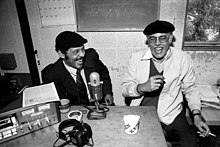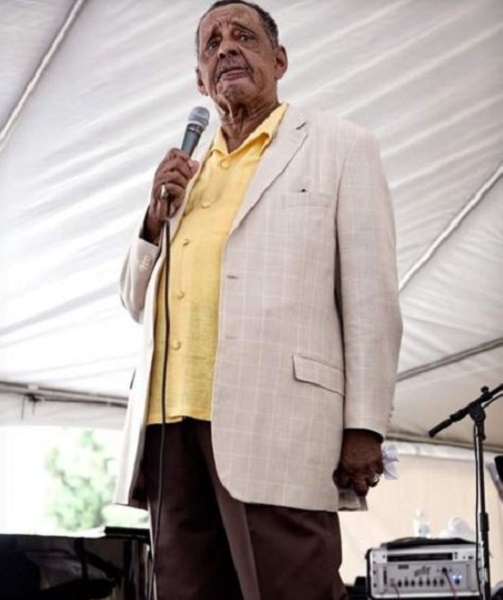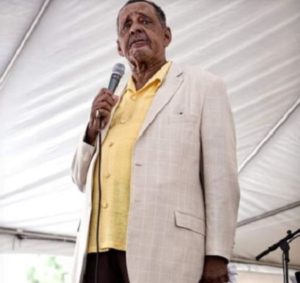Obituary- Singer Ernie Andrews Cause Of Death
Singer Ernie Andrews's death cause is speculated as a natural death.
However, there has been no concrete revelation on his actual death cause yet.
Andrews was raised in Los Angeles and spent his childhood in his mother's Baptist Church.
Ernie's family relocated to Los Angeles in his early teenage, where he studied drums at Jefferson High School and continued to sing.
In 1947, when Ernie won an amateur show at the Lincoln Theatre on Central Avenue in Los Angeles, songwriter Joe Greene noticed him.
Greene was so taken with Andrews that he immediately took him into the studio to record at 17.
Andrews established himself as a force to be reckoned with after scoring a 300,000-seller in "Soothe Me."
In 1969, Andrews made Baltimore his home.
Who Was Ernie Andrews Wife? Family Details
Ernie Andrews's wife, Dolores Andrews, was a great inspiration for his music.
Ernie returned to Los Angeles in 1974 after his musical travel to live with his wife Dolores, who then was 50 years old.
However, Dolores died before him, and Ernie went on with his life, sharing it with his five children and grandchildren.
A few years ago, Andrews returned to the Gaiety Club across from the Lincoln Theatre when his life was chronicled in an award-winning documentary, Ernie Andrews' Blues on Central Avenue, produced by Lois Shelton.
Ernie continued to perform in clubs, concerts, and jazz festivals worldwide, including several appearances in Las Vegas.
In 1989, he recorded Live at Town Hall NYC (Concord) with Gene Harris and the Philip Morris Superband.
Subsequently, he toured for three months across five continents with the band.
He performed in concert at club locations worldwide in 1993, 1994, and 1996, including Europe, Asia, Australia, the United States, Canada, and South America.
What Was Ernie Andrews' Net Worth At The Time of His Death?
Ernie Andrews' net worth is estimated at around $5 million at his death.
Andrews was a member of the Harry James ensemble, making his debut on November 26, 1958, at Chicago's Blue Note jazz club.
He recorded for Columbia Records as well as other labels.
Ernie's career slumped in the 1960s and 1970s before rebounding in the 1980s.
He worked with the Capp/Pierce Juggernaut Band, Gene Harris, Jay McShann, and the Harper Brothers.
Andrews was featured prominently in the documentary film Blues for Central Avenue.



